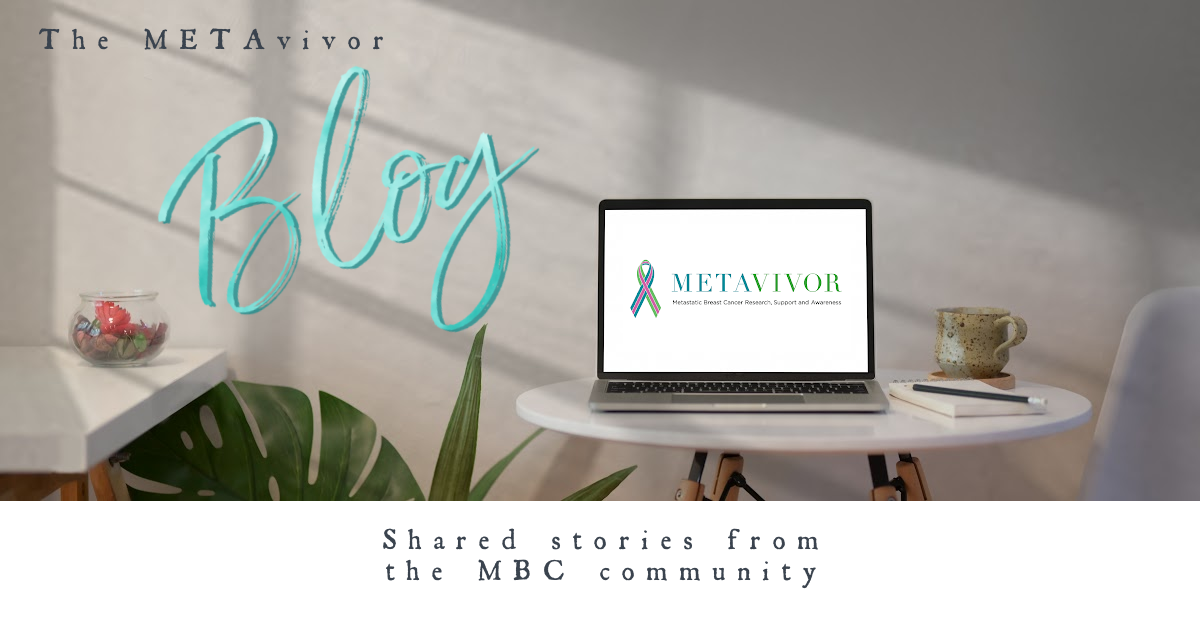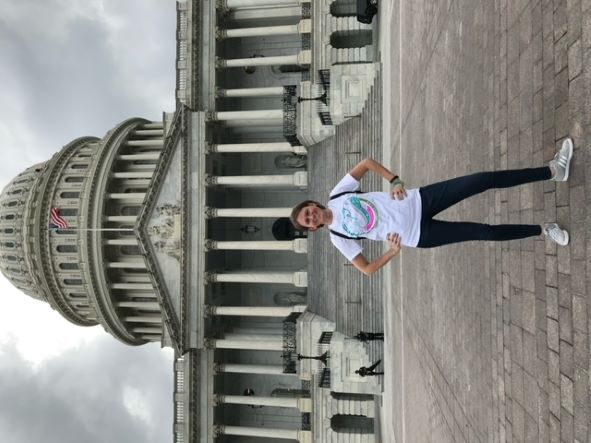
The METAvivor Board always sets goals for research. We have had such amazing fundraisers through the years who have done a great job of helping us meet those goals and increase funding for metastatic breast cancer research. It is simply amazing what our supporters help us accomplish.
In 2017, we awarded $660,000 in research grants and just four years later, in the midst of a pandemic, we awarded $5.2 million! It is wonderful but we know we can't stop there. We must keep going.
One of our retired Board Members, Patrick Quinn coined the phrase "Raising money locally to fund the best research nationally", and that is exactly what each of our supporters have done!
Many people who love and support METAvivor may not know the history of our Metastatic Breast Cancer Research Program, so we thought it would be helpful to share a little bit about how we started and the updates we have made through the years.
The METAvivor Research Program was started in 2009. It was an outgrowth of a support group that was started by METAvivor founders. The support group members raised $55,000 through yard sales, home tours and other events and had asked to have the money earmarked for metastatic breast cancer research. After being told that it could not be earmarked, they set about starting the first every peer reviewed metastatic breast cancer research program.
Dr. Danny Welch was the first recipient of the award and to this day, remains part of METAvivor's Scientific Advisory Board along with Dr. Jill Bargonetti and Dr. Stuart Martin.
Over the next couple of years, METAvivor raised the metastatic breast cancer awards to $80,000. The grants were targeted at career metastasis researchers. We continued to award that amount until 2017 when we increased funding to $100,000. In 2017 we also participated in the Cancer Moonshot with a goal to fund $1 million in research. Because of our fabulous donors and fundraisers, we were able to beat that goal and fund $1,650,000 in metastatic breast cancer research. It was also the first year for an endowment. One of our supporters created an endowment in memory of his daughter Kristin Keydel. The Kristin Keydel Endowment for Metastatic Breast Cancer Research remains intact, earning interest toward future metastatic breast cancer research and we work to inform other families of the opportunity to add to our Endowment Fund which will provide an enduring source of income for metastatic breast cancer research.
In late 2016, our attention turned to an article in the Journal of Nature which shared that early career investigators were leaving the field of metastatic cancer research because of such a small amount of funding. Why did it matter? Because we need new, brilliant minds to help discover treatments, therapies, and one-day a cure for metastatic breast cancer. We were able to pivot quickly and offer grants of $50,000 to early career investigators in 2018. We also increased our funding to $200,000 for career metastasis researchers. Since that time, we have been able to add in additional research grants for special research, pre-clinical and clinical trial funding; raise the amount of the grants to $100,000 for Early Career Investigator awards and $250,000 for Translational Research awards; and we have been able to do a special Founders Award for clinical research of $500,000.
In 2021 we were able to award 31 grants that included 7 grants to determine why black women die of MBC at a higher rate than other races, 10 Early Career Investigator Awards, 1 Advisors Award and 13 Research Awards. In our last newsletter, METAvivor announced 26 of those grants and an additional five awards in February. Those additional awards include:
Lisa Carey, PhD, The University of North Carolina at Chapel Hill, Chapel Hill, NC – “HARMONY: Harnessing the Analysis of RNA expression and Molecular subtype to Optimize Novel Therapy for metastatic breast cancer”
Presented by METAvivors of NJ in Memory of Donna Karlis – Sara Tolaney, PhD, Susan F. Smith Center for Women’s Cancers, Dana Farber Institute, Boston, MA - “Enhancing the immunogenicity of PD-L1+ metastatic HR+ breast cancer via DNA damage”
Kornelia Polyak, MD, PhD, Dana-Farber Cancer Institute, Boston, MA – “Metastatic niche metabolomes and epigenetic heterogeneity in breast cancer”
Carol Sartorius, PhD, University of Colorado, Denver, CO – “Endocrine therapy driven reprogramming of circulating tumor cell-platelet interactions in driving late metastatic spread of ER+ breast cancer”
METAvivor Early Career Investigator Research Award:
Presented by the Bayhill 9 Holers and Friends, Honoring the Memory of Linda Pizzolato – Marjan Rafat, PhD, Vanderbilt University – Nashville, TN – “An engineered bone marrow microenvironment model to investigate the impact of stiffness in breast cancer metastasis”
Since 2009, METAvivor has awarded 165 research grants totaling $23,150,000 million. METAvivor is the only national organization with a peer-reviewed grant program aimed at exclusively funding MBC research, and 100% of all donations go to fund research.
Our goal is to fund $10 million in metastatic breast cancer research by 2024. We must do it. Raising more money for research funding is critical to help bring new treatments and therapies to market; to create additional options for bridge treatments, especially for those subtypes that have few treatment options; to make current treatments and therapies better for patients; and to discover more and better ways to improve progression free and overall survival of metastatic breast cancer.
If you are interested in fundraising for Metavivor, let us know by contacting [email protected] or set up your fundraiser here Fundraise For METAvivor - Campaign

In March, Congress finalized the Fiscal Year (FY) 2022 appropriations bills. Better late than never, the bills were passed six months into FY 2022, but included notable funding increases for community priorities. Specifically:
$44.96 billion for the National Institutes of Health (NIH), an increase of $2.03 billion over FY 2021.
$1 billion to establish the Advanced Research Projects Agency for Health (ARPA-H) within the HHS Office of the Secretary. Permanent placement of ARPA-H remains a work in progress.
Additional committee instructions expressing support for efforts to modernize the Surveillance, Epidemiology, and End-Results (SEER) Registry.
Continued inclusion of “metastatic cancer” within the Department of Defense (DoD) Peer-Reviewed Cancer Program (PRCRP).
Level-funding of $150 million for DoD’s Peer-Reviewed Breast Cancer Program.
Given the delay in finalizing the FY 2022 spending bills, the administration could not fully prepare a budget request for FY 2023, which ceremonially starts the next appropriations process. While the budget request was light on detail and could not properly respond to final FY 2022 funding, it also clearly expressed a substantial effort to reinvigorate the Cancer Moonshot.
Congress has also been working quickly to advance FY2023 spending measures with a bipartisan and bicameral goal of enacting final bills before the end of the calendar year. NIH, DoD, and other agencies have been called to testify before House and Senate appropriators on funding priorities and key programs. Outside organizations have also been invited to provide testimony on annual priorities and opportunities. METAvivor has been actively participating in this process to support the following requests:
A $3.5 billion increase for NIH.
Separate, additional funding to further support ARPA-H.
$5 million to establish a SEER modernization pilot program.
Continued inclusion of “metastatic cancers” within the DoD PRCRP.
A meaningful funding increases for the DoD Peer-Reviewed Breast Cancer Program.
It is an election year, and lawmakers are currently planning to do most of the legislating during the “Lame Duck” session that will take place after the November elections. At this time, Congress may advance bipartisan, popular, and timely bills either in a larger package or as stand-alone measures. Currently, the Metastatic Breast Cancer Access to Care Act (S. 1312/ H.R. 3183) has 28 bipartisan cosponsors in the Senate and 203 bipartisan cosponsors in the House. The Cancer Drug Parity Act (S. 3080/H.R. 4385) has 20 bipartisan Senate cosponsors and 24 bipartisan House cosponsors. While these numbers are impressive and reflect dedicated community advocacy, more support may be needed to ensure the bills have a chance to move forward in the current Congress.
Please join METAvivor’s national network of volunteer advocates and lend your voice to community outreach and awareness efforts on Capitol Hill. We offer several training and assistance opportunities, support and instructional materials, and State Captains who can support your efforts. Personal outreach and building relationships with your legislators are critical to advancing the community’s research funding and medical coverage and access priorities on an annual basis.
If you wish to become a state captain, an advocate, or join the upcoming Stampede, please email [email protected].
METAvivor’s state captains play an essential role in organizing grassroots support for increased Federal MBC research funding and other MBC legislative priorities. For new state captains, mentoring is available from experienced state captains. There are also meetings of state captains every other month, and support materials are available online. If your state already has a captain, please consider volunteering to be a co-captain, or even better, to form a committee of captains. You may volunteer by writing [email protected] .
You do not need to have Metastatic Breast Cancer to be a state captain. Some state captains are family members or friends of people with MBC, who find that serving in this role is a tangible way that they can help their friend or loved one.
If your state does not have a captain, please consider volunteering for that position. There are currently captains in 37 states. The states that do not have captains are:
Arkansas
Colorado
Georgia
Hawaii
Idaho
Kentucky
Louisiana
Maine
Mississippi
Nebraska
Tennessee
Utah
Wyoming
Again, you may volunteer by writing [email protected] .

|
THE MOST IMPACTFUL ADVOCACY WORK IS SHARING YOUR PERSONAL STORY Read as METAvivor Board Secretary and Ohio State Captain, Kate Watson reflects back on her first Stage IV Stampede in 2018. Hear how she navigated the emotional and wonderful experience as a first time participant and what continues to resonate with her today. |
 |